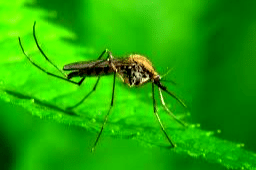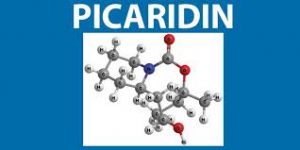The Zika virus, together with other insect-borne diseases, is starting to make people afraid to travel and even engage in sexual intercourse with a traveling partner. As you well know, the Zika virus has been causing deaths among unborn fetuses, who suffer from birth defects and adults, who suffer from complications.
Preventing mosquito bites is the main way to ward off the Zika infection because it is still acquired primarily through mosquito bites. Once you ward off the mosquitoes, you, your partner, and your entire family are safe from acquiring the Zika virus.

In keeping the Zika mosquitoes or Aedes species of mosquitoes away, you need to use organic repellents. Organic repellents are better at keeping you healthy while keeping mosquitoes at bay. Lemon eucalyptus oil and picaridin are two of the most effective organic repellents available in the market these days. Read on and learn more about these indispensible products, which you can acquire easily from your local stores.
What Lemon Eucalyptus Oil Offers
Lemon eucalyptus oil is natural oil acquired from the lemon scented eucalyptus. It has already becoming very popular as an organic repellent. Everyone knows about the adverse effects of DEET that should not be dealt with on a daily basis.
Lemon eucalyptus oil is acquired from the twigs and leaves of the eucalyptus plant, known to be a lemon scented gum. It is scientifically known as Corymbia citriodora or Eucalyptus citriodora. This tree is a tall organism that can make it up to 50 meters. It originated from the tropical and temperate northeastern part of Australia. Aside from its scent, it is also in demand for its value for the production of honey and timber. It is also an important plant in the horticulture industry within Australia and outside of it.
PMD(p-methane-3,8 diol is the synthetic version of the lemon eucalyptus oil. It has properties that eliminate pests safely. It is considered as an alternative to highly toxic repellents. PMD is said to mask the cues that mosquitoes get from the environment to locate and select their target or prey. Even if PMD is a term used to replace oil of lemon eucalyptus oil, it is still different from what is known as the unrefined or pure oil, which is used in the production of fragrances.
Eucalyptus oil is known as Cetiedil, which is its registered name in trade. Other generic names for lemon eucalyptus oil are PMDRBO (PMD rich botanic oil) used in Europe and OLE (oil of lemon eucalyptus) used in the US.

What is the Purpose of Lemon Eucalyptus Oil?
The oil of lemon eucalyptus is derived through the process of steam distillation. The resulting oil is thin in consistency and is pale yellow in color. The oil’s aroma is lemony, fresh, and sweet, with a certain hint of woodiness. Take note that pure lemon eucalyptus oil, is not registered with the EPA (Environmental Protection Agency) as a known insect repellent.
The refined PMD version of this oil has also become known as a potent repellent in the US. It has been used in China in the form of Quwenling, which means “effective mosquito repellent”. In the year 2000, the EPA recognized and registered PMD or lemon eucalyptus oil as a biopesticide repellent. This means that the oil if acquired from organic materials or ingredients. Lemon eucalyptus oil products can be applied safely on your clothing or your skin, so that you can be protected from gnats, mosquitoes, and biting flies. You can purchase them in the form of lotion or spray.
What is the Composition of the Oil of Lemon Eucalyptus?
Lemon eucalyptus oil is made up of 80% citronellal, which is produced most of the time in China and Brazil. This oil’s citronellal is transformed into trans-isomers and cis-isomers. The process occurs naturally as the leaves of the plant grow older. The pure form of PMD is derived from synthetic citronellal for commercial manufacturing. Linalool and limonene are also extracted from the oil of lemon eucalyptus.
What You Get from Lemon Eucalyptus Oil
Oil of lemon eucalyptus has many health benefits. It helps in improving the health of a person suffering from sinusitis, arthritis, cold sores, bronchitis, colds, catarrh, soughing, cold sores, poor circulation, flu, and fever.
PMD or lemon eucalyptus of a safe product to use in the place of DEET, which is a widely used synthetic insect repellent. DEET has been known to cause harmful effects, especially in young users. In Tanzania, humans were used to test the oil. The result was that the oil of lemon eucalyptus gave 6 to 7.75 hours of protection. When the experts compared the results with those of DEET’s, lemon eucalyptus oil and DEET had everything in common, including effectiveness against the Aedes species of mosquitoes. Lemon eucalyptus oil is also effective against deer tick, biting midge, and the stable fly.
When you burn the leaves of lemon eucalyptus tree in Sahara , Africa, you end up saving lot of money in protecting your household from diseases like Zika.

Apply the oil of lemon eucalyptus on your skin, so that you can prevent deer tick or mosquito bites. This oil can also help in treat onychomycosis(toenail fungus), osteoarthritis, congestion in the chest, and muscle spasms. The lemon eucalyptus oil’s protection against mosquitoes can last for about six hours. It is safe but you should not use it on children younger than three years old.
For treating onychomycosis, there is still insufficient evidence that lemon eucalyptus oil is effective in eliminating this condition. It can be combined with menthol and camphor and then applied on the affected area. You can also apply chest rub such as Vicks VapoRub to the infected toenails every day, until the nail grows out.
Safety of Lemon Eucalyptus
The oil of lemon eucalyptus is safe for most adult users, when it is applied topically as a repellent against mosquitoes. Others may have a negative skin reaction to it. Never ingest lemon eucalyptus . It is unsafe. Chest rubs should be kept in a place where children won’t be able to reach it. Experts also say that breastfeeding or pregnant women should avoid using it.
Any Side Effects?
According to studies conducted by the EPA, either PMD or lemon eucalyptus oil have no side effects greater than eye irritation. It is merely categorized as an eye irritant. The products for ready use and the ones diluted are said to be milder. Rarely, there have been reports of skin irritation. Before using this herbal oil, be sure to perform a skin patch test, to see if you are allergic to its components. You should also see a healthcare professional before you use lemon eucalyptus oil so that you can maximize this oil’s benefits and therapeutic effects.

What You Need to Know about Picaridin
Picaridin can repel chiggers, ticks, and mosquitoes. It is a man-made compound, first manufactured during the 1980s. It was created to resemble piperine, which is found in black pepper producing plants. Picaridin has only been made available in the US in 2005.
Picaridin can be applied on your skin to ward off chiggers, ticks, mosquitoes, fleas, and biting flies. These picaridin products are available as wipes, pumps, aerosols, sprays, and liquids. You can choose from about two dozen picaridin products in the US.
How Picaridin Woks
Picaridin does not kill insects. It just repels them, removing their urge to bite. It has properties that block the ability of mosquitoes to sense their prey. When insects take a whiff of picaridin, they move away from the treated clothes or skin. When you apply picaridin properly, you acquire a barrier that prevents mosquitoes from landing on your skin and eventually biting it as much as they can.
Exposure to Picaridin
Chemical exposure can happen to people in four different ways: eye contact, ingestion, skin contact, and inhalation. As you may already know, Picaridin is applied on your skin. You can also breathe it in when you spray it around your body, especially when you do so indoors. Washing hands after applying picaridin is important especially before smoking or handling food. If you do not wash your hands after your picaridin repellent application, it is highly likely for you to swallow some of it. Make sure you read and follow instructions and labels carefully.
What if you Get Exposed to Picaridin?
Skin is a common manifestation of picaridin exposure in some people. Even so, it is uncommon for this to happen. Eye irritation can also happen. A study was performed in which rats were fed picaridin. The kidneys of these rats were greatly affected. They also lost weight. When Picaridin was inhaled, it was classified as non-toxic.
In a study made on rats treated topically with picaridin, about sixty percent of picaridin was absorbed. In a study performed on humans, only six percent of picaridin was absorbed through the skin. Picaridin may also be degraded once it is inside your body. Both humans and rats excrete a large percentage of picaridin within an entire day of their exposure to the repellent.

Picaridin as an Alternative to DEET
Picaridin is like DEET when it comes to its effectiveness as a repellent. It does not usually cause skin irritation and it is not taxing to use at all. Picaridin is a derivative of piperidine. It was initially developed by Bayer®. Since 1998, many countries have been using it as Bayrepel®. It is also known as Icaridin, but is marketed as Picaridin. Since 2005, it has been available in the US.
Picaridin is an effective repellent against biting insects like deer ticks, flies, and mosquitoes. Below are some of the common insects that picaridin repels:
- Aedes taeniorhynchus (Black Salt Marsh Mosquito)
- Aedes aegypti (Yellow Fever Mosquito)
- Aedes albopictus (Asian Tiger Mosquito)
- Culex pipiens fatigans (House Mosquito)
- Exodus ricinus (The common tick, also known as the castor-bean tick, pasture tick or sheep tick
- Anopheles sinensis, Anopheles stephensi, Anopheles dirus *Species of mosquito found in Asia, considered vectors for the malaria disease.
- Ixodes scapularis (The deer tick, carrier of lyme disease)
- Biting midges (also known as biting gnats)
- Rhipicephalus sanguineus – Brown Dog Tick
- Culex quinquefasciatus Tabanidae (The common horsefly)
- Stomoxys calcitrans (The stable fly)
- Musca domestica (The housefly)
- Simulium venustum (The black fly)
What Good Do Natural Repellents Give You?
It is a common sight to see people slathering themselves with synthetic insect repellents, whenever they are in areas outside their home. These harmful substances stay on your skin and may even cause irritation.
Natural repellents repel insects such as those Aedes species of mosquitoes that cause the dreaded Zika virus. They do not kill the pesky intruders. They merely disable their ability to sense their prey, which include humans and their pets. Here are some of the benefits you can acquire from using natural repellents:
- They actually work better. Natural repellents work better than synthetic ones, such as those with DEET. Soy-based insect repellents provide a longer lasting protection that products with low concentration of DEET.
- They are not as hazardous as DEET. As you know, DEET (N,N-DIethyl-3-methylbenzamide) is the most widely used repellent against leeches, fleas, ticks, and mosquitoes. Unfortunately, DEET affects your CNS or Central Nervous System. Experts also fear that when this substance interacts with other repellents, its toxicity increases.
- The AAP (American Academy of Pediatrics) only recommend repellents that have a minute amount of DEET especially when they are going to be used on children. DEET repellents should never be used on children below two months old. If you have children to protect against biting insects, it is best to choose repellents without DEET or just use mosquito nets and protective clothing.
- They are considered safe to use on sensitive skin. Synthetic substances such as phthalates, parabens, and petroleum irritate the skin. Natural repellents do not cause any kind of irritation.
- They smell a lot better. These natural repellents can be produced with cinnamon oil, peppermint oil, geranium oil, and other aromatic oils. Your experience in repelling insects becomes more positive and appealing with natural repellents.
Zika and other mosquito-borne diseases should be kept away from your household and work area. Discuss your options with your family doctor about it.